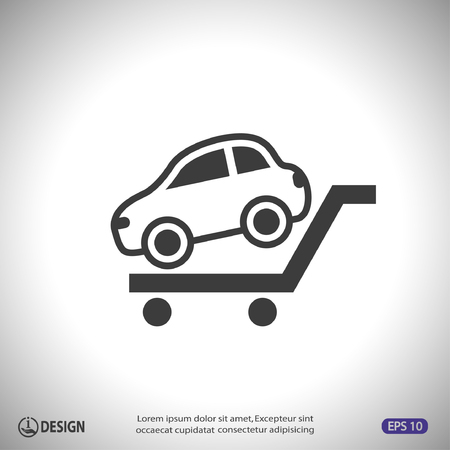1. Understanding Different Types of Car Auctions
When looking for the best car auctions near you, its essential to understand the different types of auctions available. Each type of auction has its own advantages and drawbacks, so knowing what to expect can help you make the right choice.
Public Car Auctions
Public car auctions are open to anyone and often feature a wide variety of vehicles, including used cars, repossessed vehicles, and rental car fleet sales. These auctions are an excellent option for buyers looking for affordable prices, but they may come with risks, such as limited vehicle history information and no warranties.
Dealer-Only Car Auctions
Dealer-only car auctions are restricted to licensed car dealers. These auctions typically offer better-quality vehicles at wholesale prices, making them an attractive option for businesses in the auto industry. However, if youre not a dealer, you wont be able to participate directly.
Government Car Auctions
Government car auctions include surplus vehicles from government agencies, police departments, and military organizations. These auctions often feature well-maintained cars, trucks, and SUVs at competitive prices. The downside is that inventory is limited, and availability may vary by location.
Online Car Auctions
Online car auctions allow buyers to participate from anywhere, offering convenience and access to a vast selection of vehicles. Some online auctions are open to the public, while others require registration or a dealer’s license. However, buyers should be cautious about additional fees and shipping costs when purchasing from online auctions.
Comparison of Car Auction Types
| Type of Auction | Who Can Participate? | Pros | Cons |
|---|---|---|---|
| Public Auctions | Anyone | Wide vehicle selection, low prices | Limited vehicle history, as-is condition |
| Dealer-Only Auctions | Licensed dealers | Wholesale prices, better vehicle quality | Restricted access to the public |
| Government Auctions | Anyone | Well-maintained vehicles, competitive prices | Limited inventory, availability varies |
| Online Auctions | Depends on auction | Convenient, large selection | Potential shipping costs, additional fees |
By understanding these different types of car auctions, you can identify the best option based on your needs, budget, and experience level. Whether youre looking for a great deal, a well-maintained government vehicle, or wholesale pricing through dealer auctions, knowing where to look is the first step in finding the best car auction near you.
2. Researching Local Car Auctions
Finding car auctions near you starts with knowing where to look. There are several online tools and resources that can help you locate nearby auctions, whether they are public, dealer-only, or government-run. Here’s how you can find the best options in your area.
Use Online Directories
Several websites specialize in listing car auctions. These directories allow you to search by location, auction type, and available inventory.
| Website | Features |
|---|---|
| AuctionZip | Lists local car auctions across the U.S. |
| Manheim | Mainly for dealers, but some public auctions available |
| IAAI | Salvage and used car auctions |
| GovDeals | Government surplus vehicle sales |
Check Auction House Websites
Many car auction houses have their own websites where they list upcoming events, vehicle inventory, and bidding instructions. Checking these regularly can help you stay informed about auctions happening near you.
Explore Local Listings
Besides online directories and auction house websites, local resources can also provide useful information about car auctions near you. Some of the best places to check include:
- Newspaper classified ads
- Community bulletin boards
- Local dealership websites
- City websites or government auction pages
Visit Auctions in Person
If you find a promising auction near you, consider visiting before you plan to buy. This allows you to observe the process, ask questions, and get a feel for how bidding works. Some auctions also offer previews where you can inspect vehicles before placing a bid.
By utilizing online directories, auction house websites, and local listings, you can easily find car auctions in your area. Take your time to research different options and make sure to attend a few before making a purchase.
![]()
3. Evaluating Auction Terms and Conditions
Before participating in a car auction, its essential to understand the terms and conditions set by the auction house. Different auctions have varying rules, fees, and bidding processes, which can impact your overall buying experience. By familiarizing yourself with these details, you can avoid unexpected costs and make informed decisions.
Understanding Auction Fees
Most car auctions charge additional fees beyond the winning bid amount. These fees can quickly add up, so its important to be aware of them in advance. Below is a table outlining common auction fees and their purposes:
| Fee Type | Description |
|---|---|
| Buyers Premium | An additional percentage of the winning bid paid to the auction house. |
| Registration Fee | A fee required to participate in the auction, sometimes refundable. |
| Document Fee | Charges for handling paperwork and processing title transfers. |
| Storage Fee | Costs incurred if the vehicle isn’t picked up within a specified period. |
Reading the Auction Rules
Each auction house has its own set of rules regarding bidding, payments, vehicle inspections, and returns. Some auctions are “as-is,” meaning no guarantees on the condition of the cars. Others may allow limited returns under specific conditions. Carefully review these rules before placing any bids.
Key Points to Review:
- Are there any bidding restrictions?
- What payment methods are accepted?
- Can you inspect the vehicle before bidding?
- What are the pickup deadlines?
- Are there any penalties for non-payment or backing out?
Bidding Process and Strategies
Understanding how bidding works is crucial before participating in an auction. Some auctions use live in-person bidding, while others allow online bidding. Take note of the auction format and decide on a budget beforehand to avoid overspending.
Common Bidding Formats:
- Live Auctions: Bidders place offers in real-time with an auctioneer leading the process.
- Online Auctions: Bidding is done through an auction platform, often with time-limited bids.
- Sealed Bids: Participants submit their highest offer without knowing other bids.
By fully understanding the auction terms, associated fees, and bidding processes, you can navigate car auctions with confidence and increase your chances of securing a great deal.
4. Inspecting Vehicles Before Bidding
Before placing a bid on a car at an auction, it’s crucial to inspect the vehicle thoroughly. Auctions often sell cars “as-is,” which means there are no refunds or returns. A careful inspection will help you avoid costly surprises down the road. Here’s how to check a vehicle’s condition, review its history, and estimate potential repairs.
Check the Vehicle’s Condition
A physical inspection is the first step in assessing a car’s condition. If possible, bring a flashlight and an OBD-II scanner to help with your evaluation.
Exterior Inspection
- Look for dents, scratches, or mismatched paint, which could indicate past accidents.
- Check the condition of the tires—uneven wear may suggest alignment or suspension issues.
- Examine the headlights, taillights, and turn signals to ensure they are intact.
Interior Inspection
- Check the upholstery for excessive wear, stains, or odors.
- Test the seat adjustments, power windows, and air conditioning.
- Look at the dashboard for warning lights that may indicate mechanical problems.
Engine and Mechanical Check
- Pop the hood to check for leaks, corrosion, or worn belts.
- Rev the engine and listen for any unusual noises such as knocking or tapping.
- If allowed, take the car for a short test drive to assess acceleration, braking, and steering.
Review the Vehicle History Report
Most major auctions provide a vehicle history report from services like Carfax or AutoCheck. This report gives you insight into the car’s past, including accidents, title status, and service records. Pay attention to:
- Title Status: Avoid salvage or rebuilt titles unless you understand the risks.
- Accident History: Multiple accidents could indicate hidden structural damage.
- Odometer Readings: Ensure the mileage is consistent with records to avoid fraud.
- Maintenance Records: A well-documented service history is a good sign of a well-maintained car.
Estimate Potential Repair Costs
Before bidding, consider the car’s repair needs and estimate the costs. Some common repairs and their approximate costs are listed in the table below:
| Repair Type | Estimated Cost |
|---|---|
| Brake Pads Replacement | $150 – $300 |
| Battery Replacement | $100 – $250 |
| Engine Tune-Up | $200 – $500 |
| Transmission Repair | $1,000 – $3,500 |
| Paint Job | $500 – $3,000 |
By doing your due diligence before the auction, you’ll have a better idea of whether a car is a good deal or a money pit. No matter how great a car looks, always verify its condition and history before bidding.
5. Developing a Smart Bidding Strategy
When it comes to car auctions, having a solid bidding strategy can make all the difference. If you don’t plan ahead, you might end up overpaying or missing out on a great deal. Follow these tips to bid wisely and increase your chances of success.
Set a Realistic Budget
Before participating in an auction, determine how much you’re willing to spend, including fees, taxes, and potential repairs. Stick to your budget to avoid unnecessary financial stress.
Key Budget Considerations
| Factor | Estimated Cost |
|---|---|
| Winning Bid | Varies |
| Auction Fees | $200 – $1,000+ |
| Title and Registration | $50 – $300 |
| Repairs and Maintenance | $500 – $5,000 |
| Transportation Costs | $100 – $1,000 |
Avoid Bidding Wars
It’s easy to get caught up in the excitement of bidding, but emotional decisions can be costly. If the price rises beyond your budget, be prepared to walk away. There will always be other opportunities.
Maximize Your Chances of Winning at a Good Price
Do Your Research
Check the vehicle’s market value, inspect its condition, and set your maximum bid accordingly. Knowing what the car is worth helps you avoid overpaying.
Bid Strategically
- Start with a lower bid to gauge competition.
- Increase bids gradually rather than jumping to your maximum amount.
- Observe other bidders to spot aggressive competitors.
- Wait until the final moments before placing your highest offer.
Consider Online vs. In-Person Auctions
Many auctions are available online and in-person, each with its own advantages.
| Type | Pros | Cons |
|---|---|---|
| Online Auctions | Convenient, access to more inventory | Can’t inspect vehicle in person |
| In-Person Auctions | Hands-on inspections, physical bidding experience | Limited location options |
By developing a strategic approach to bidding and sticking to your financial limits, you can navigate car auctions with confidence and land a great deal.


